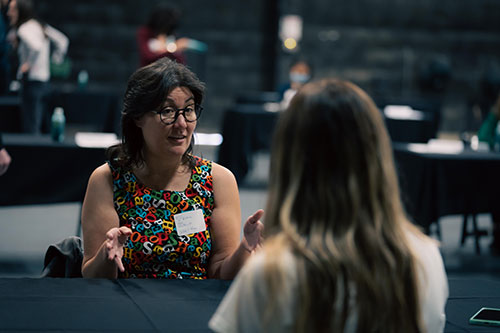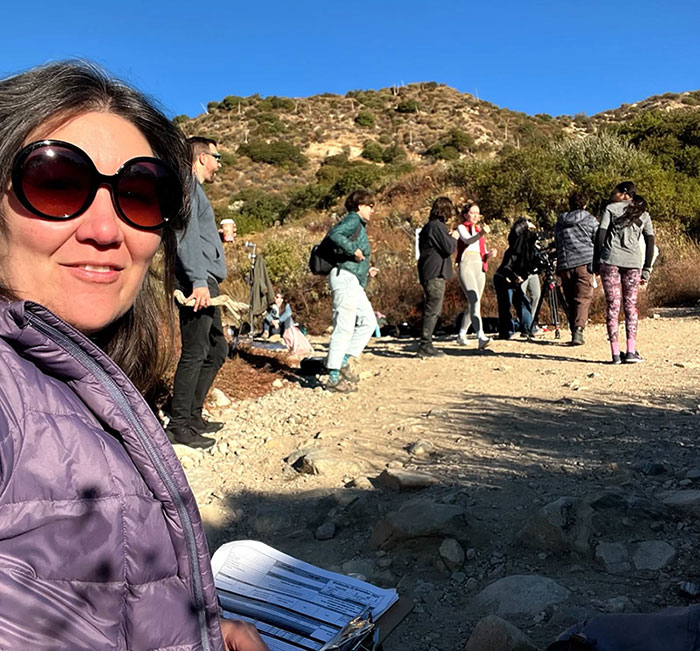You can make them as fun, romantic, or scary as you want.
2/10/2026 • Melinda Hsu
Succeed With Calm
Taking charge of your internal state is a smart career move.

You can make them as fun, romantic, or scary as you want.
Growing up amidst a California drought, climate and conservation were core to my upbringing. I helped my dad water the plants with just enough water to fill my doll’s teacup. My grandmother accused me of being “stingy,” but I was really just making sure we had enough water to go around. But what really got my brain contemplating the greater scope of climate challenges—before we called them that—was reading, and apparently misunderstanding, a comic book produced by Disney about energy conservation.

In grade school, my class studied lessons about conserving resources that helped fuel my lifelong passion for the environment. Because I often reflect on this comic book when I think back on my personal origin story, I recently decided to look up the comic book. To the best of my knowledge, it was some version of a comic produced by Disney called Mickey and Goofy Explore The Universe of Energy at Epcot Center. Apparently, this book was meant to promote the Epcot Center’s Universe of Energy theme park attraction as well as its sponsor…Exxon. While I suppose the book was also promoting oil consumption, as a 3rd grader, all I remember from the book was that natural resources are finite and we need to be mindful of how we use them. I can’t wait to get a copy of this book to see if my poor comprehension skills helped me become a climate activist!
Either way, I’m delighted by all the attention climate stories are getting in Hollywood. This year, there have been two complimentary climate panels: It’s the End of the World As We Know It hosted by the WGAW Genre Committee, moderated by Aaron Wiener and featuring WGAW members Andy Bobrow, Josh Friedman, Angela Kang, and Michael Tolkin, as well as University of Chicago professors James Evans and Daniel Holz, authors of the recent New Yorker story “Are We Doomed?”; and A Happier Ending: Writing the Climate Future We Want for Film and TV, which I moderated, featuring WGAW member Kira Snyder, Dr. Joe Árvai, Professor of Psychology and Director of the USC Wrigley Institute for Environment and Sustainability, and Catherine Baltazar, Senior Policy Analyst & Organizer at Climate Resolve. These panels brought writers together with science experts and advocates to educate screenwriters on how to deepen their stories with real world scenarios.
Also, the Hollywood Climate Summit marked its fifth year of hosting climate panels, workshops, and activities to motivate screenwriters and producers to engage with climate themes more actively in their stories. It turns out even casual acknowledgement of climate topics resonate enough with viewers to help them change their habits.
 Writing the stories you’re already inspired to write can easily become climate stories simply by acknowledging that climate exists in the world of your characters.
Writing the stories you’re already inspired to write can easily become climate stories simply by acknowledging that climate exists in the world of your characters.

For example, in an episode of And Just Like That…,Miranda changes her mind from ordering a meat burrito to a “plant-based option” for lunch, and the research organization RARE conducted a study to reveal the impact of viewer perceptions on reducing meat consumption. Viewers tended to have more positive attitudes toward plant-based diets based on this brief exposure without feeling the entertainment value of the episode was compromised. Fun fact: I learned this statistic at a Hollywood Climate Summit event for WGA writers last September during one of their non-conference events.
As Co-Founder of Erosion, an independent film production company dedicated to telling conservation and climate comedies, I primarily work with writers who don’t realize they have climate stories to tell. Many writers shy away from conservation themes, because they think their stories have to be pedantic. However, unless you’re writing for an education-based producer, writing the stories you’re already inspired to write can easily become climate stories simply by acknowledging that climate exists in the world of your characters.

What if you’re not writing a character ordering lunch? Conservation and climate show up in our lives in all sorts of ways:
Whatever challenges your characters are going through, there’s a complementary climate issue to pair it with, and it can be as fun, romantic, or scary as you want.
Tracy Held (she/they) is a multi-racial Chinese-Eastern European American writer who tells stories about people who want to save the world but struggle with the human interaction part. She co-founded Erosion, a film production company dedicated to conservation comedy film and TV and serves as Vice-Chair of the Writers Guild of America West Asian American Writers Committee. Tracy earned a BS in Conservation and Resource Studies from UC, Berkeley and an MFA in Dramatic Writing at Carnegie Mellon University. She won an Alfred P. Sloan screenwriting award for SCIENCE FAIR THE MUSICAL.